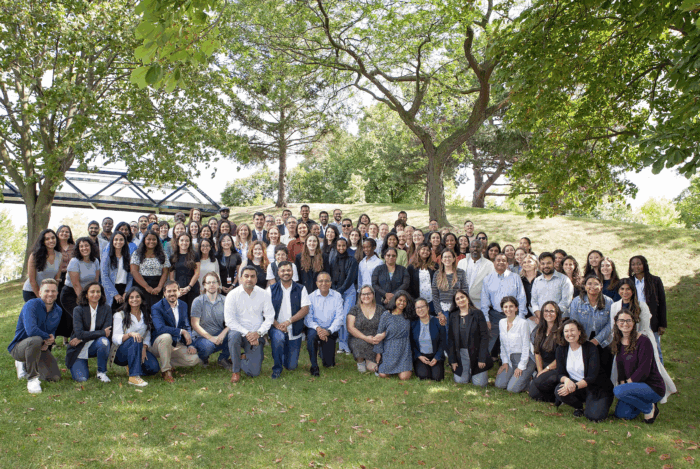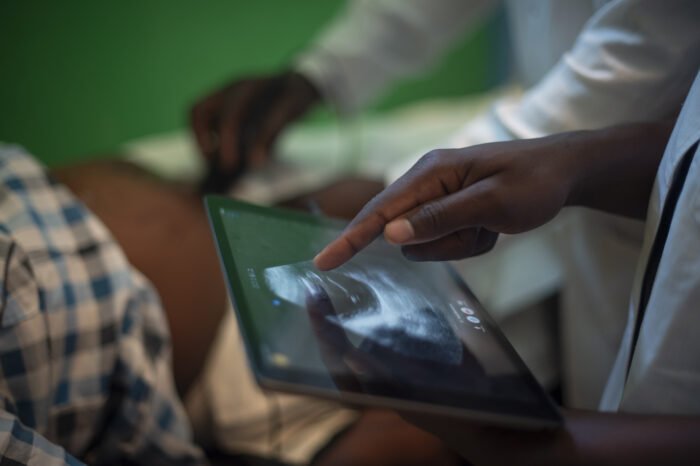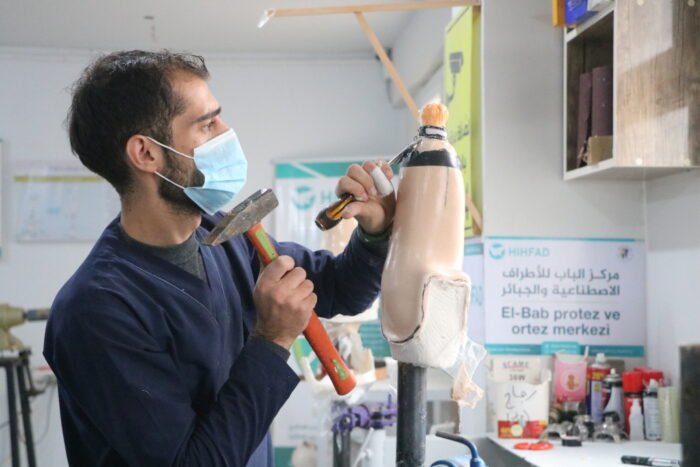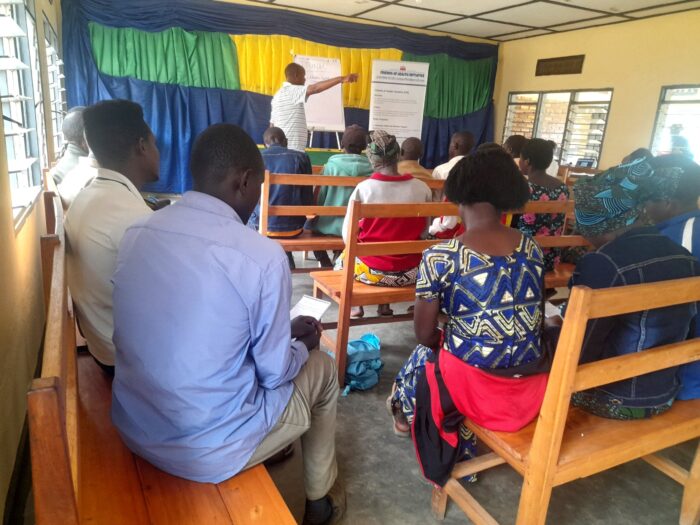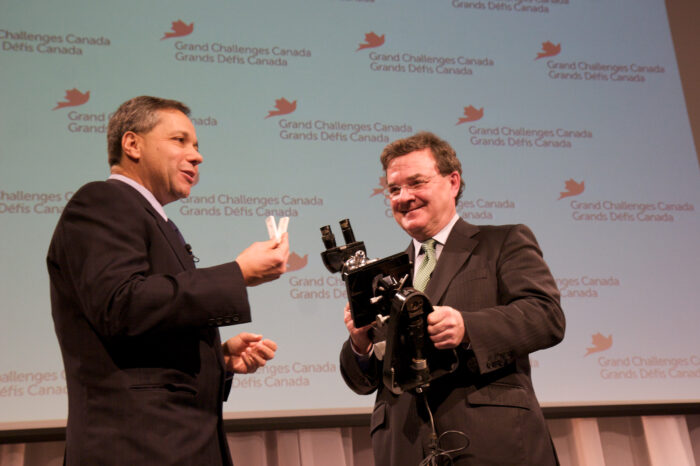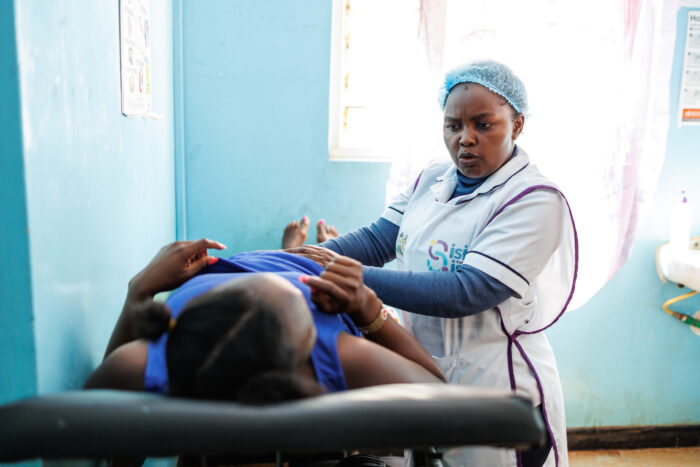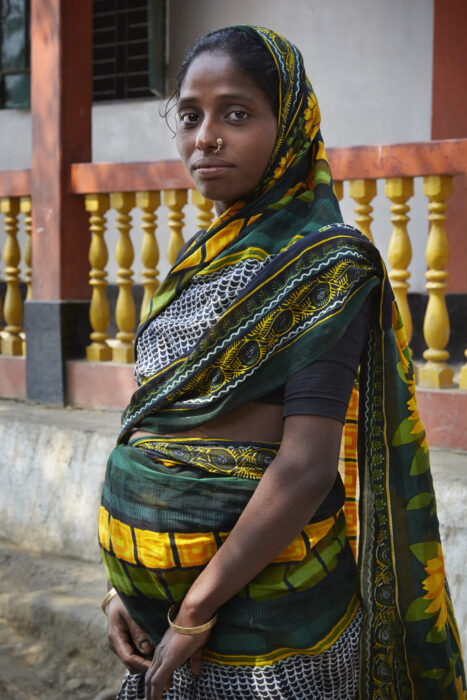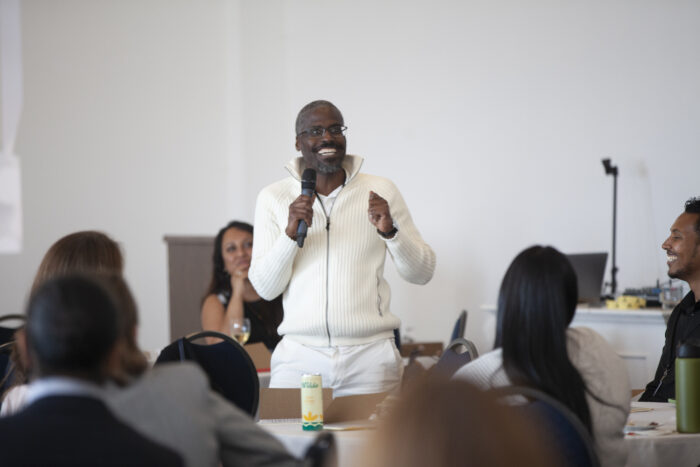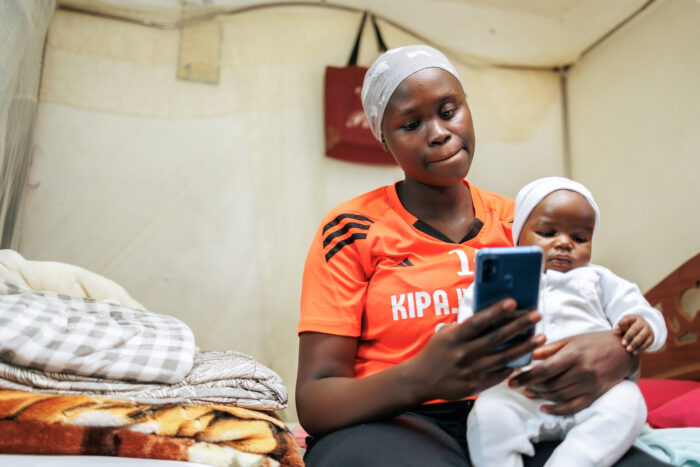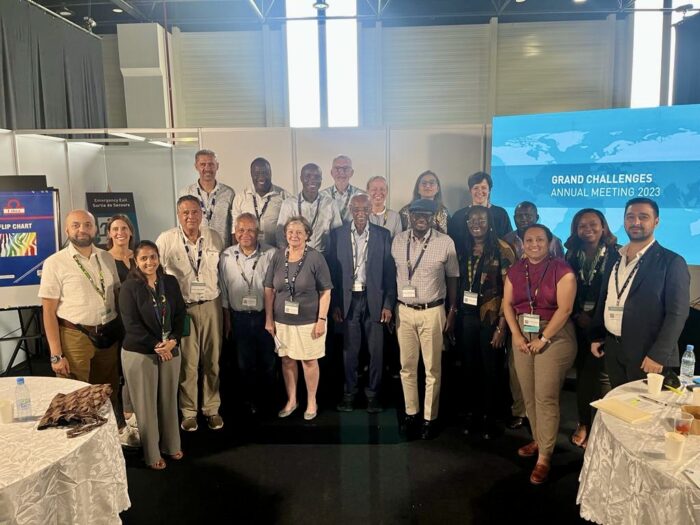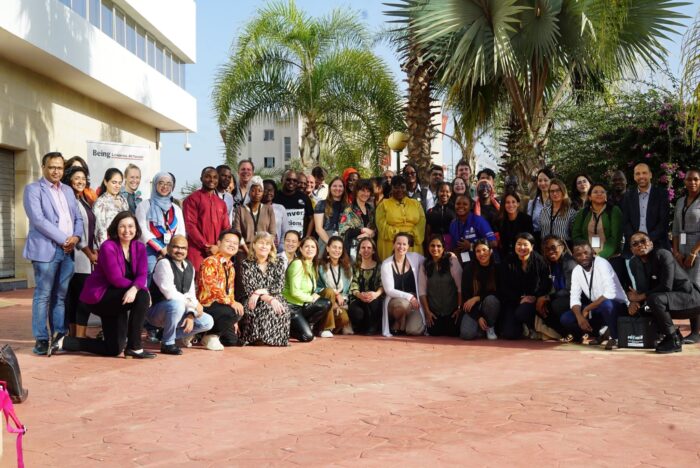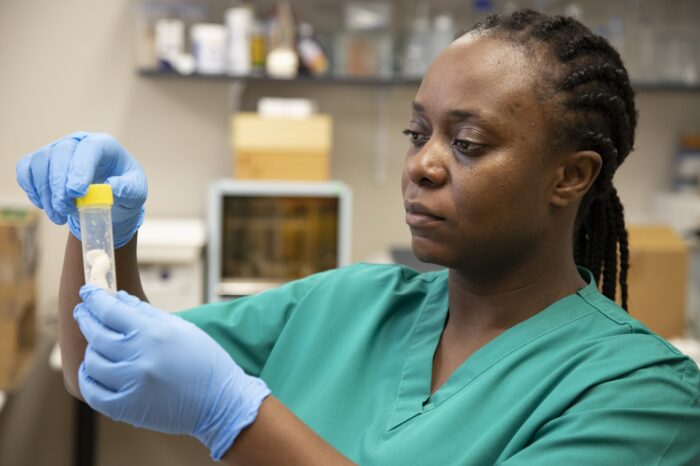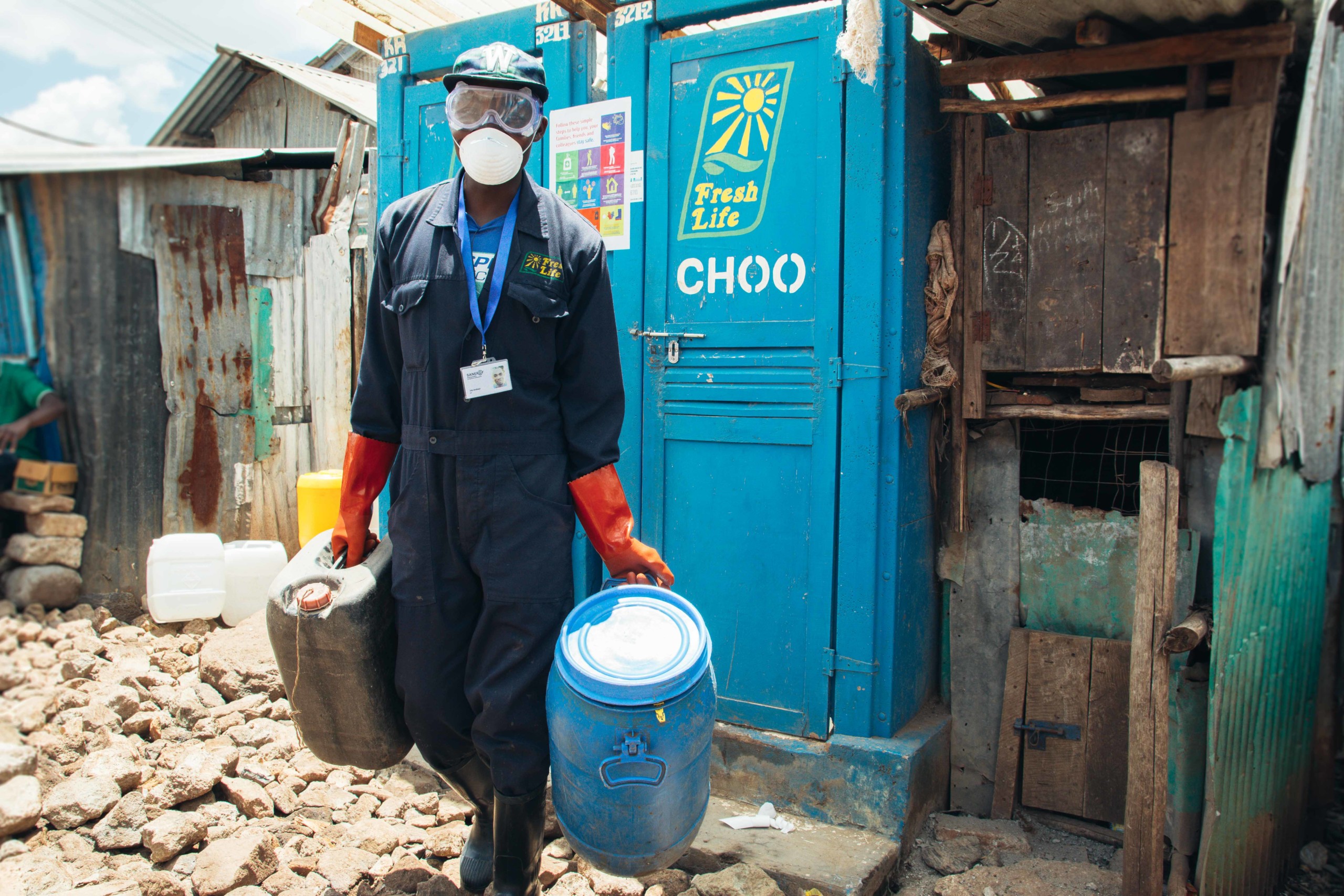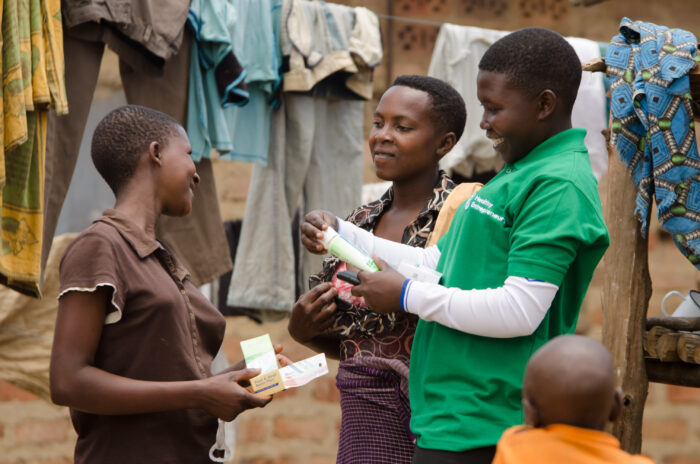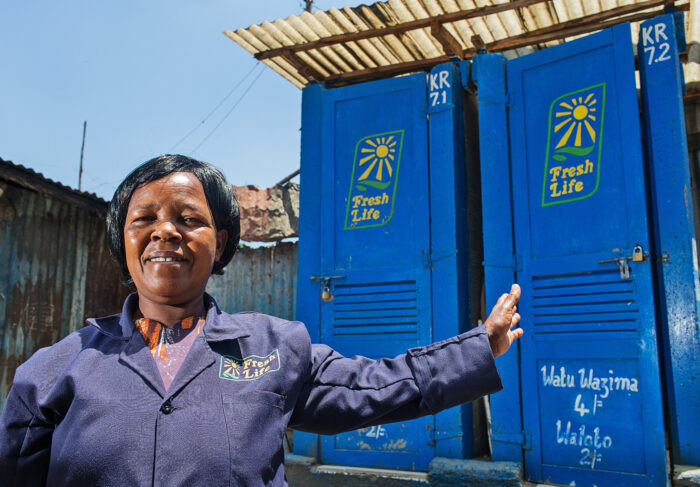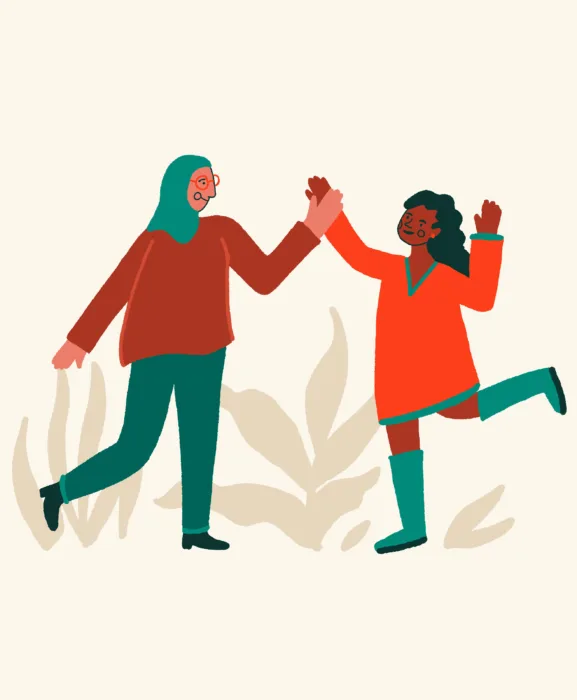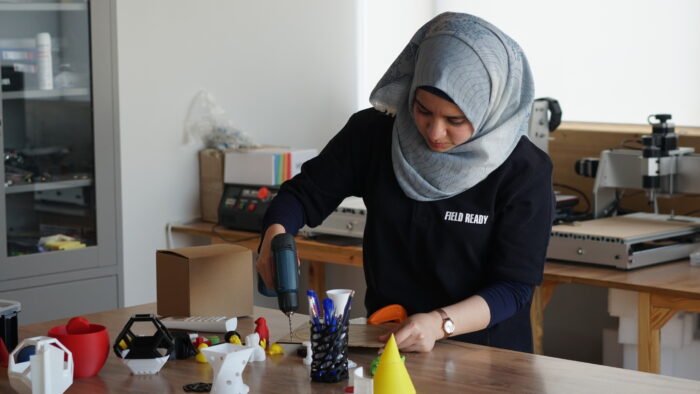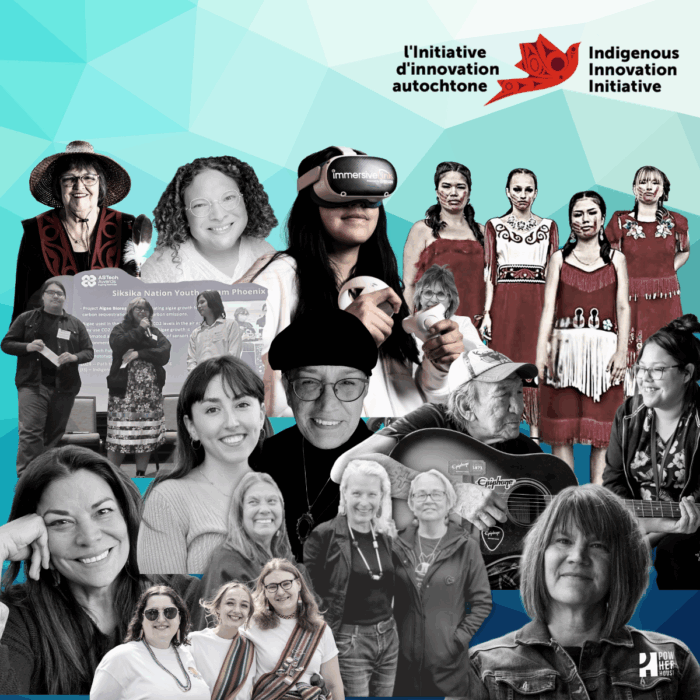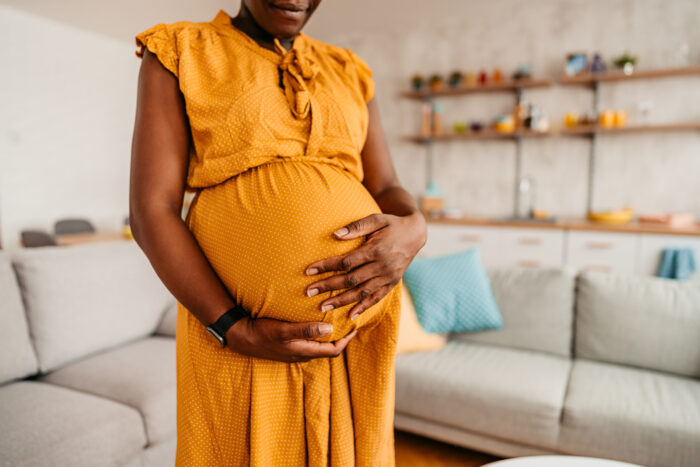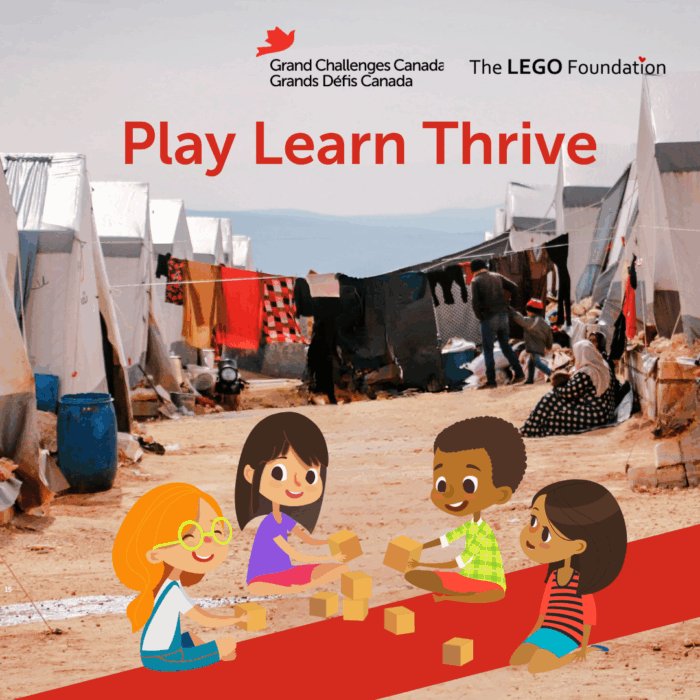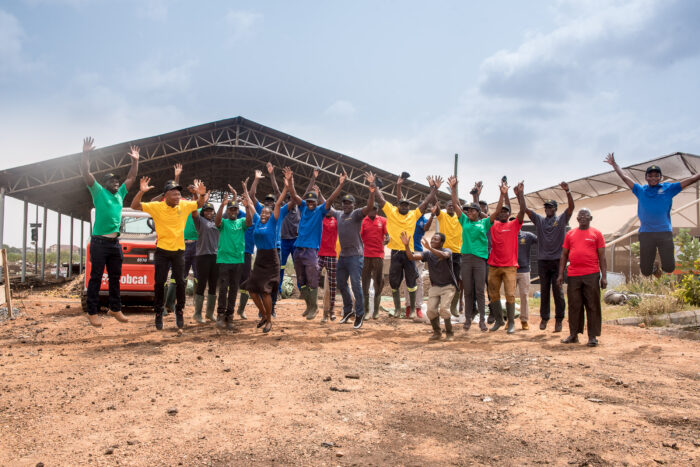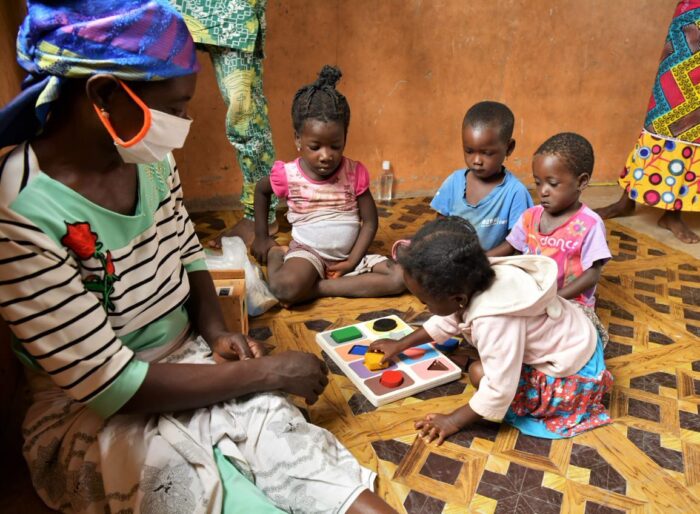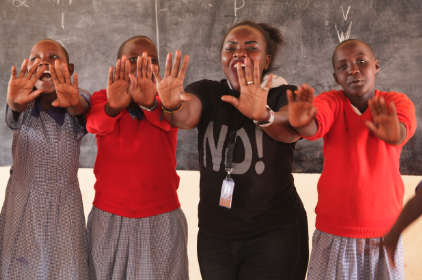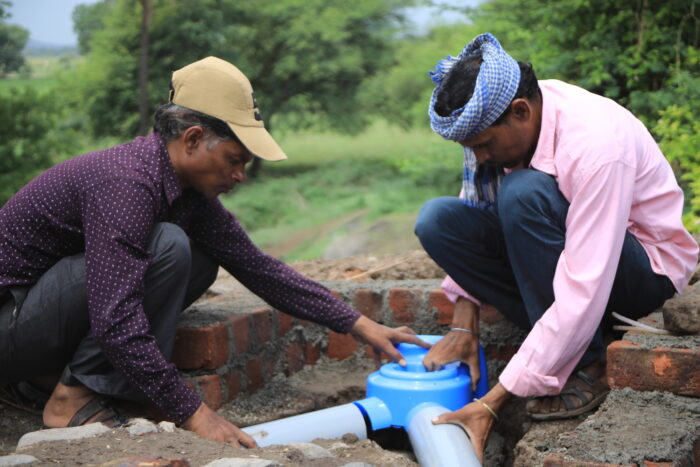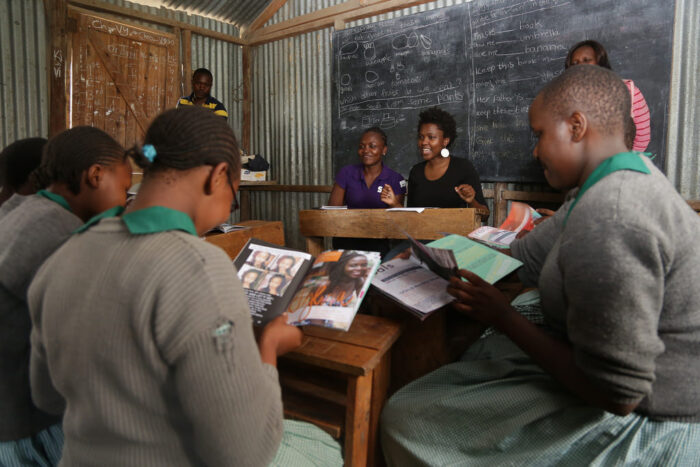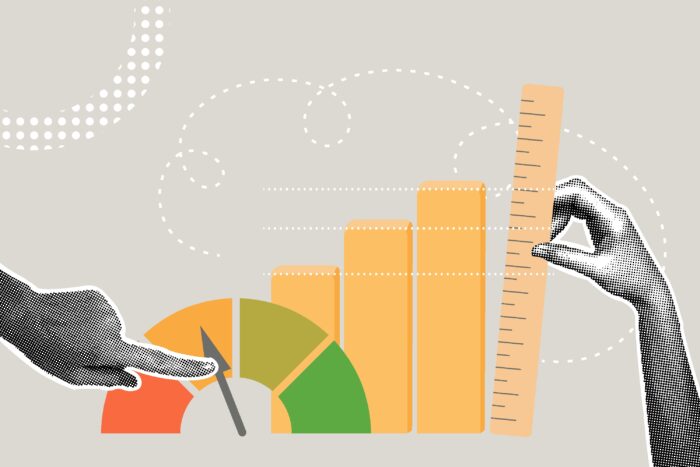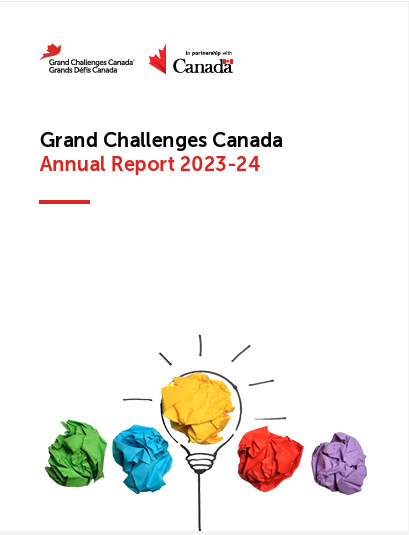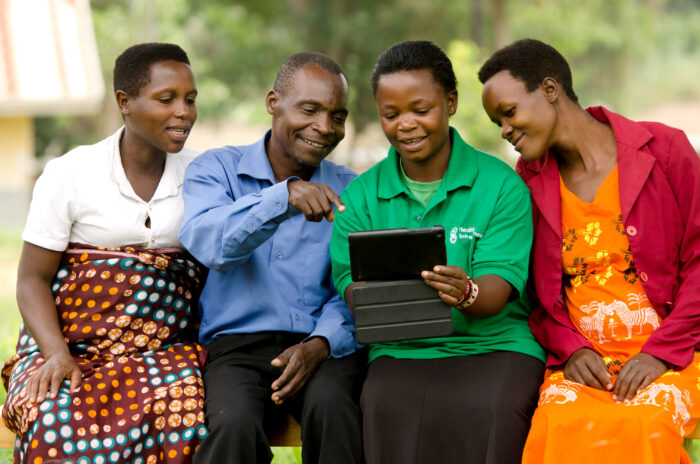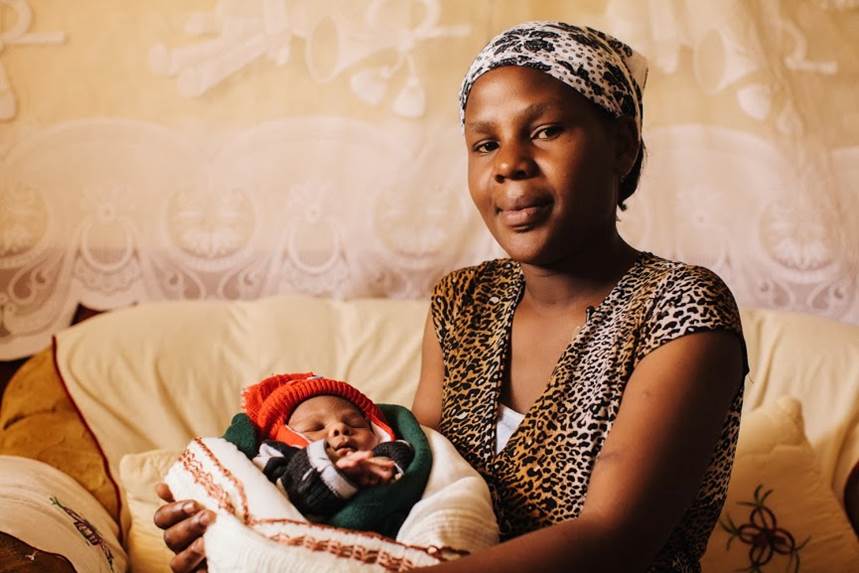Nick Pearson is Founder and Executive Director of Jacaranda Health. Nick has worked at the intersection of business and global health in East Africa, Vietnam and India. Allison Ettenger is a Program Manager with Jacaranda Health, working on research and evaluation partnerships.
“Since you came home from Jacaranda Maternity, have you had fever or chills?” asks Sharon, a Jacaranda Community Health Worker (CHW).
Ruth* came to Jacaranda Health three days ago to deliver her healthy baby girl. When it was time to leave the hospital, Jacaranda nurses counseled Ruth – as they do for all of our mothers – to make sure she and her newborn had the best opportunity to stay healthy once they returned home to Kasarani, just outside Nairobi.
But this is just the beginning of Jacaranda’s commitment to Ruth and her baby. Sharon’s question comes from Jacaranda’s Postpartum Home Follow-Up Checklist, a series of screening questions Jacaranda’s Community Health Workers (CHWs) ask once our mothers are leaving for home. This is part of an innovative strategy to ensure that mothers and babies delivered at a Jacaranda hospital safely transition from hospital to home. Our project was awarded a seed grant in 2012 by Saving Lives at Birth, a partnership between Grand Challenges Canada, the U.S. Agency for International Development (USAID), the U.K. Department for International Development (DFID), the Government of Norway and the Bill & Melinda Gates Foundation.
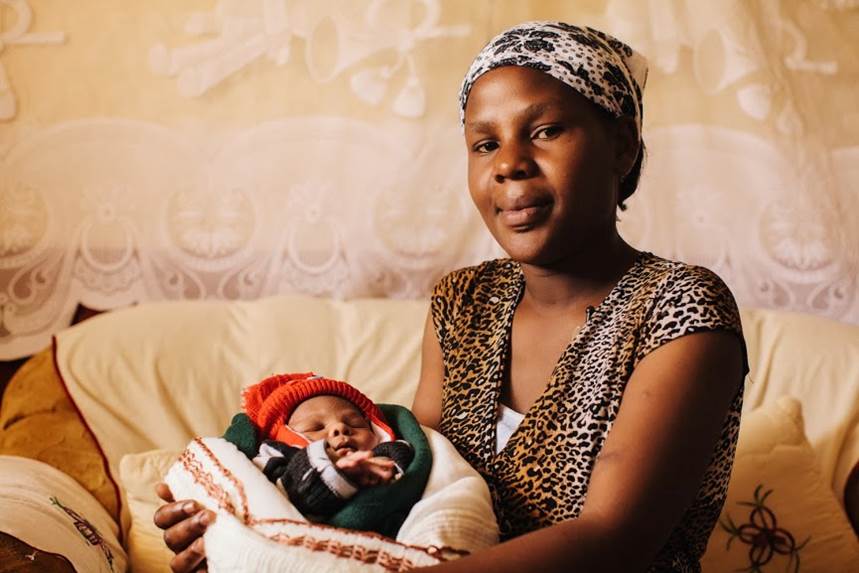
Jacaranda’s trained CHWs use the checklists to conduct a comprehensive follow-up to reduce risk in the potentially dangerous time after delivery. The checklists guide CHWs to identify and refer danger signs early, and to provide reminders for essential counseling on topics like breastfeeding and cord care. Community Health Workers counsel the new mothers on the importance of seeking timely care and troubleshoot common barriers low-income women face when seeking care, such as lack of transport, hospital fees, and decision-making with their husband around postpartum family planning.
Jacaranda’s collaboration with researchers at the Harvard School of Public Health ensures that we rigorously evaluate these innovative delivery approaches. The evaluation of this program is currently underway, but we are excited to share four early insights from our pilot:
- Reduce health risks through early detection and action. Good news: when potential risks were detected by the CHW, nearly 70 percent of women followed through with our referral and sought the recommended care. What are some of those risks? Newborn jaundice, infection and breast issues were among the most common complications we identified.
- Promote Healthy Postpartum Behaviour. Here’s what we already know: less-educated and poor women are less likely to receive postnatal care than their wealthier and more educated counterparts in Kenya. Contact and follow-up shortly after delivery could reduce this disparity for Jacaranda’s low-income clients. We find that women who received a call or visit returned to our facility between 50% and 74% more frequently for postnatal care, family planning or child wellness services, as compared to delivery clients who did not receive a visit or a call.
- Promote timely postpartum family planning. Home visits and calls also provide a unique opportunity for counseling around postpartum family planning decision-making. As a part of our strategy integrating family planning education across the continuum, CHWs conduct structured health education (adapted from Population Council’s great Balanced Counseling Strategy) to help women (and partners) decide on the family planning method that is right for them. During the follow-up, 76% of participating women selected a specific method of family planning to be started at their six-week postnatal clinic visit.
- Importance of a multi-level care team. There has been a global call promoting task-shifting, particularly to CHWs, to combat health-worker shortages in low-resource settings such as Kenya. Yet, too frequently, the lifeline to expert trainers and clinicians is cut after the conclusion of a short training. We’re taking a different approach by strengthening the facility–community link through teams of CHWs and nurses. This support is essential: they know they have the nurses and, more importantly, the hospital behind them.
When providing this care to Jacaranda mothers and their newborns, our preliminary findings show that we’re able to reduce health risks, promote healthy behaviour postpartum and ensure a safe transition home in these critical few days after delivery.
*Name changed for privacy
Join the conversation on Twitter by using hashtag #MothersDay. We encourage you to post your questions and comments about this blog post on our Facebook page Grand Challenges Canada and on Twitter @gchallenges
